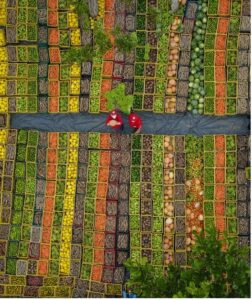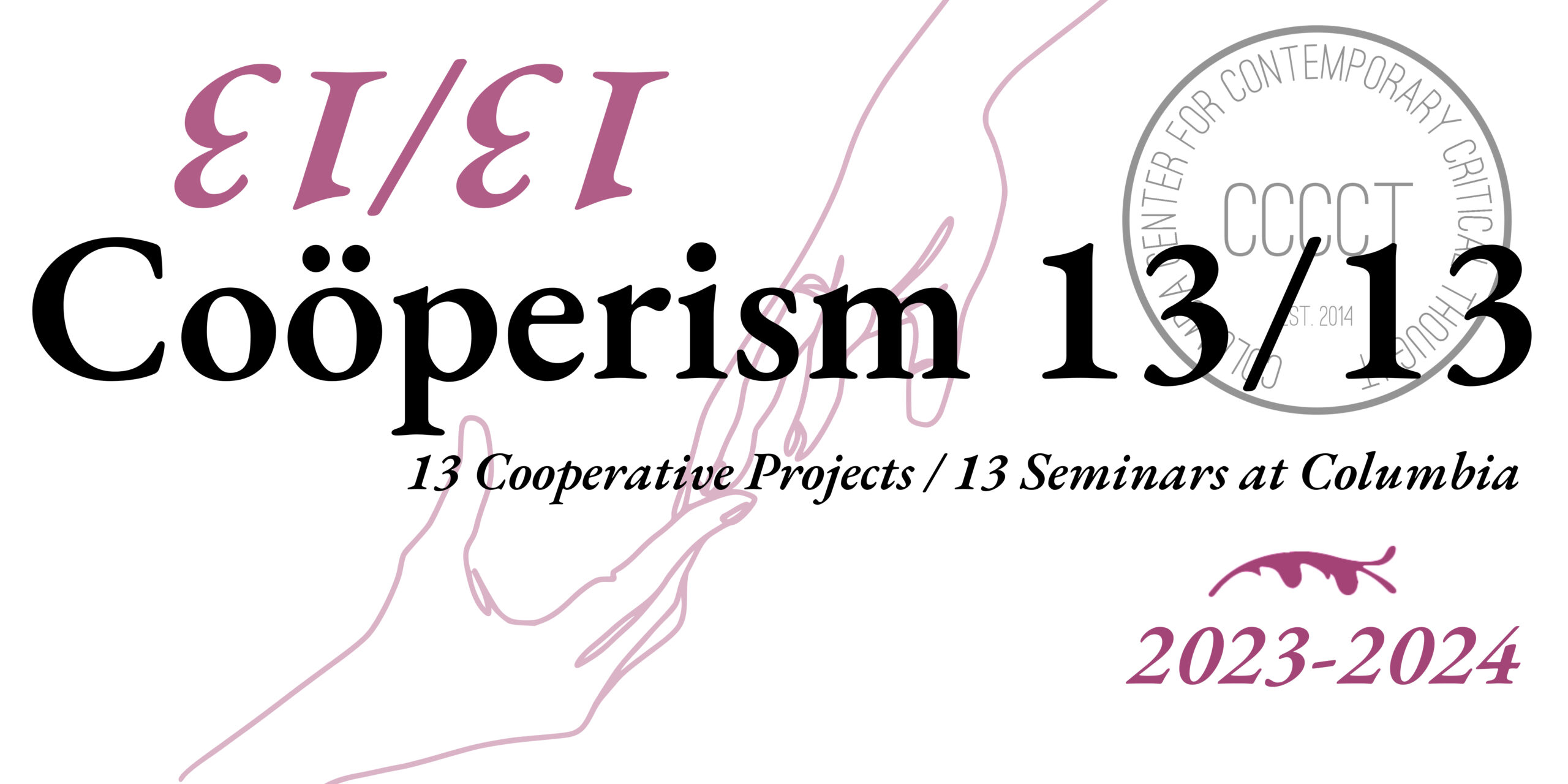Imagining University Cooperatives with Kali Akuno:
Introduction to Coöperism 13/13
What are the most promising forms of cooperation that can be harnessed to build a more sustainable, equal, and just society? What can we learn from existing forms of cooperation—such as worker cooperatives, mutual aid, revolutionary movements, temporary autonomous zones, producer and consumer coops, mutuals, and solidarity networks—in order to create robust networks of cooperation? How might we overcome the common challenges and barriers that undermine working together? How can we combine, concentrate, leverage, and compound existing experiments in cooperation in order to construct a sustainable ecological, political, economic, and social environment? Is it possible to do this in societies with histories of colonialism, conquest, and slavery? Would it be possible to imagine a robust regime of “Coöperism” that would eclipse current forms of neoliberal capitalism?
These are the questions that we explore this year in Coöperism 13/13. We seek to examine and evaluate different cooperative initiatives, to understand how they are constructed and maintained, to see how they work, to ask whether they can serve as exemplars, to explore whether they can work together, to determine how they might influence our critical praxis. The questions could not be more urgent.

Visit of Lula to Landless Workers Movement (2023). Photo credit: Ricardo Stuckert.
A surge of cooperative energy materialized during the early months of the COVID-19 pandemic. Mutual aid groups brought food and necessities to those who could not leave their homes. Massive protests against the police galvanized people and brought them together, in the streets, on social media, in bail funds. Climate activists rallied together to challenge global climate change. But things slowly reverted to “normalcy”—neoliberal, exploitative, authoritarian normalcy. And all our political efforts today are monopolized trying to fight against resurgent, white nationalist, aspiring dictators, with little time to focus on sustainable and just futures. Yet the crises go on unabated—global climate change, racialized mass incarceration, our punitive society, grossly unconscionable inequalities… The need for cooperation to counter these crises is more pressing than ever.
Last year’s public seminar Utopia 13/13 demonstrated the promise and the importance of what we called “concrete utopias”—really-existing, ongoing, on-the-ground initiatives that realize utopian visions of a better future through concrete, material, organizing efforts. Drawing on the critical framework of “concrete utopias,” we turn this year to promising forms of cooperation that could be combined, concentrated, leveraged, and compounded into a political, economic, and social regime of Coöperism.
We start with the communal occupation of the forest and explore forms of cooperation that take place within temporary autonomous zones (TAZs) such as Defend the Atlanta Forest/Stop Cop City and Notre-Dame-des-Landes. We explore rescue at sea operations in the Mediterranean as a form of cooperation that steps in when there is no functional or willing state. We have sessions on forms of cooperation in Brazil within the Landless Workers Movement and the cooperative occupation of unused agricultural lands. We interrogate the writings of great philosophers of cooperation such as Simone Weil. We speak with critical theorists, practitioners and philosophers including Bethania Assy, Étienne Balibar, Alyssa Battistoni, Benjamin Davis, Kamau Franklin, Che Gossett, Chloe Howe Haralambous, Rahel Jaeggi, Antonio Pele, André Pettman, Thula Pires, Derecka Purnell, Saskia Sassen, Omavi Shukur, and Jocelyn Simonson.
And through these explorations of promising forms of cooperation, we seek to imagine and instantiate a new world of Coöperism that can displace current forms of neoliberal, extractive, and authoritarian capitalism.
Welcome to Coöperism 13/13!


Sea-Watch rescue at sea operation
